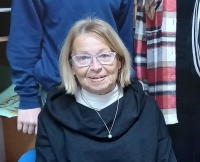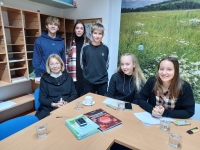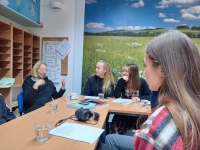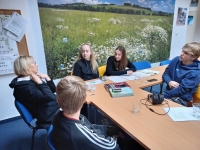I was shocked by Cuba

Download image
Naděžda Hubáčková, née Fikrlová, was born on December 30, 1947 in Prague as the first of two daughters of Marie and Václav Fikrl. The father worked in the brewery in Smíchov, the mother worked as a saleswoman. My maternal grandfather had coal store in Žižkov, where he employed Jewish boys during the war and thus protected them from transports. The communists took away his business in the 1950s. When Naděžda was three years old, the family moved to Hradec Králové, where her father got a job in a brewery. Here she started elementary school. She was involved in puppet theater, swimming, basketball, fencing and later classical and historical dance. In 1962, the parents went to Cuba, where the father got a job as a brewer. They also lived through the Cuban crisis here. For the time being, Naděžda and her younger sister Milena lived with their grandparents in Blatná in South Bohemia, then they moved to Havana with their parents for three and a half months. After returning from Cuba, Naděžda entered the Secondary School of Construction in Hradec Králové, where she graduated in the field of civil engineering. When Czechoslovakia was occupied by Warsaw Pact troops in August 1968, Naděžda was with a friend in West Germany. She managed to extend her visa and returned home only in September 1968. In the 1970s she worked as a construction budget accountant, i.e. very freely back in the days. She was interrogated several times by the State Security because of a friend who fled to Italy after 1968. In 1989, she welcomed the fall of totalitarianism with enthusiasm and hope, she was slightly less happy about the breakup of Czechoslovakia. Already in the nineties, she got involved in municipal politics and was elected mayor of Rybitví, where she lived at the time. She held the position for the next twenty years.





